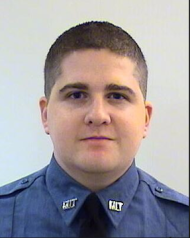By Brian Winter
BUENOS AIRES (Reuters) - When a million angry Argentines flooded the streets earlier this month to protest her government, President Cristina Fernandez decided to post a message on Twitter.
And another. And then another.
"Yes, I'm a bit stubborn, and I'm also old. But in the end, it's lucky to arrive at old age, isn't it?" one tweet read. She also mused about a 19th century fresco in her "gorgeous" palace, and the merits of a state-run literacy program.
At the end of the day, Fernandez had sent 61 tweets in a nine-hour period - prolific even by the standards of Latin America, where presidents and other leading politicians have embraced social media with a zeal unmatched anywhere else.
Their love for Twitter, in particular, has given millions of voyeurs a real-time window into policymaking - and, often, their leaders' most intimate thoughts.
Yet it has also fueled debate on whether some are guilty of "oversharing" - making politics more polarized, confrontations more personal, and potentially making the leaders themselves look awkward when they post about chats with strangers in a bathroom, for example, as Fernandez also did this month.
"Everybody who uses Twitter knows that sometimes you write something and push the send button without thinking enough about it. That's dangerous in politics ... and we've seen many examples of it," said Alan Clutterbuck, head of Fundacion RAP, a group based in Buenos Aires that seeks to improve the civility of political discourse.
"We should hold our political leaders to a different standard," he said. "You see a message that says 'I'm having a sandwich,' and you think: 'Who cares?'"
With a rich tradition of florid oratory, Latin America produced Cuba's Fidel Castro and his famed five-hour-long speeches. So it's unsurprising that some of its modern-day leaders have embraced a new platform to express themselves - but also struggle to shoehorn their thoughts into a few tidy blasts of 140 characters or less.
Politicians have also been hurling around insults since before the Twitter age, such as when the late Venezuelan leader Hugo Chavez called former U.S. President George W. Bush the "devil" at the United Nations in 2006.
Yet there is no question that the technology has made the invective fly faster than ever before.
In the aftermath of this month's bitterly contested election to succeed Chavez in Venezuela, there were moments when both candidates were simultaneously tweeting attacks on each other.
Eventual winner Nicolas Maduro referred to the opposition as "fascists," declaring: "In their crazy hatred and desperation they're capable of anything." Losing candidate Henrique Capriles used Twitter to question the results of the voting hours after polls closed, tweeting "There is an illegitimate president!"
SHOWING THEIR HUMAN SIDE
Leaders elsewhere have also taken to Twitter, though not with the same fervor. U.S. President Barack Obama has a robust feed, but his profile says he only sends some himself, signing them "-bo." As of Friday, he hadn't done so in at least a month.
In contrast, Latin America's most prolific tweeting presidents - Fernandez, Maduro, Colombia's Juan Manuel Santos and Mexico's Enrique Pena Nieto - all send a large percentage of messages themselves, their aides say.
The most popular of all was Chavez, who had more than 4 million followers prior to his death in March.
Not everybody's on board: The president of the region's biggest country, Brazil's Dilma Rousseff, stopped tweeting right after she was elected in 2010. "She thinks it's a total waste of time," one aide said.
But for others, it has become part of their identity.
Since leaving office in 2010, former Colombian President Alvaro Uribe has sometimes sent dozens of tweets a day criticizing Santos for being weak on security, among other alleged failings.
Uribe's critics say he has diminished his stature, and unfairly hamstrung his chosen successor, by weighing in so frequently on day-to-day affairs. But he has shown no signs of slowing down, and even hung in his home office a framed cartoon of himself hunched over his Blackberry, tweeting away.
"It allows direct communication, without intermediaries," Uribe said via e-mail. "The danger is that it tempts you to react to first impressions, so I try to avoid seeing many of the provocations that arrive."
At its best, Twitter can remind voters that their politicians are human - and even vulnerable.
The night of the march against her in Buenos Aires, Fernandez traveled to Caracas, and began to reflect on Chavez's death - words that added poignancy given the sudden passing of her own husband, former President Nestor Kirchner, in 2010.
"Why is it that those who live with so much intensity abandon us so soon?" she tweeted.
The following night, she started writing about "the human condition," before seemingly remembering that, even on Twitter, there are limits.
"Pardon me," she tweeted. "I started thinking, and since I can't speak (because my voice is gone), I'm channeling it through here."
"In the end, it's healthy and absolutely inoffensive."
(Additional reporting by Helen Murphy in Bogota; Editing by Kieran Murray and Sandra Maler)
Source: http://news.yahoo.com/latin-american-presidents-love-twitter-maybe-too-much-125728785.html
viktor bout ncaa hockey role models ferdinand porsche gregg williams theraflu joe avezzano
 After launching out of TechStars Boston back in 2011, Cambridge-based real estate marketing platform?Placester?has raised $2.5 million in seed financing in a round led by new Boston seed fund, Romulus Capital, with participation from other angel investors. Founded in 2009 by a former real estate agent, Matt Barba, the service helps realtors launch their own websites. During TechStars, the startup was originally designed to help realtors with online advertising, but that soon changed. “Helping real estate professionals promote their listings online through syndication was our initial focus,” explains Barba. “However, we quickly learned that the vast majority of real estate professionals don’t have anything to promote,” he says. “Essentially, they didn’t have a website. We learned there was a much more fundamental problem to be solved: Helping real estate professionals establish themselves online.” Barba understood first-hand the difficulties realtors faced in putting their data online, including data access fees, paperwork, technical challenges, and more, because of his own background in real estate. Realtors have to pull their data from MLS (Multiple Listing Service – the regional entity where real estate professionals enter and store homes that are available for sale or rent),?then pay for an IDX integration allowing customers to search their listings. This can be expensive because there are 900 U.S. MLSes, and the information retrieval methods for these are not standardized. “This difference is one of the main contributing factors to the cost of creating a platform that allows real estate professionals to establish an online presence,” Barba says. “Additionally, most MLS’s charge fees to help offset the cost of purchasing the MLS software from third party vendors, and to provide additional services to the MLS’s agent membership. These fee’s aren’t overly burdensome to large brokerages, but can often be in the hundreds of dollars, which can be overwhelming for individual agents who are just starting to invest online,” he adds. These challenges lead to customers finding that a lot of realtors’ websites had out-of-date listings, which is a poor experience. Meanwhile, the existing website providers often caused problems of their own: they were slow to deliver, or used out-of-date technology, for example. Built alongside co-founder Frederick Townes, formerly the CTO at Mashable.com, Placester addresses these problems by offering a platform where realtors can create their own maintenance-free websites in around five minutes. The sites are based on WordPress,?optimized for SEO, and are mobile and tablet-friendly. For individual
After launching out of TechStars Boston back in 2011, Cambridge-based real estate marketing platform?Placester?has raised $2.5 million in seed financing in a round led by new Boston seed fund, Romulus Capital, with participation from other angel investors. Founded in 2009 by a former real estate agent, Matt Barba, the service helps realtors launch their own websites. During TechStars, the startup was originally designed to help realtors with online advertising, but that soon changed. “Helping real estate professionals promote their listings online through syndication was our initial focus,” explains Barba. “However, we quickly learned that the vast majority of real estate professionals don’t have anything to promote,” he says. “Essentially, they didn’t have a website. We learned there was a much more fundamental problem to be solved: Helping real estate professionals establish themselves online.” Barba understood first-hand the difficulties realtors faced in putting their data online, including data access fees, paperwork, technical challenges, and more, because of his own background in real estate. Realtors have to pull their data from MLS (Multiple Listing Service – the regional entity where real estate professionals enter and store homes that are available for sale or rent),?then pay for an IDX integration allowing customers to search their listings. This can be expensive because there are 900 U.S. MLSes, and the information retrieval methods for these are not standardized. “This difference is one of the main contributing factors to the cost of creating a platform that allows real estate professionals to establish an online presence,” Barba says. “Additionally, most MLS’s charge fees to help offset the cost of purchasing the MLS software from third party vendors, and to provide additional services to the MLS’s agent membership. These fee’s aren’t overly burdensome to large brokerages, but can often be in the hundreds of dollars, which can be overwhelming for individual agents who are just starting to invest online,” he adds. These challenges lead to customers finding that a lot of realtors’ websites had out-of-date listings, which is a poor experience. Meanwhile, the existing website providers often caused problems of their own: they were slow to deliver, or used out-of-date technology, for example. Built alongside co-founder Frederick Townes, formerly the CTO at Mashable.com, Placester addresses these problems by offering a platform where realtors can create their own maintenance-free websites in around five minutes. The sites are based on WordPress,?optimized for SEO, and are mobile and tablet-friendly. For individual












